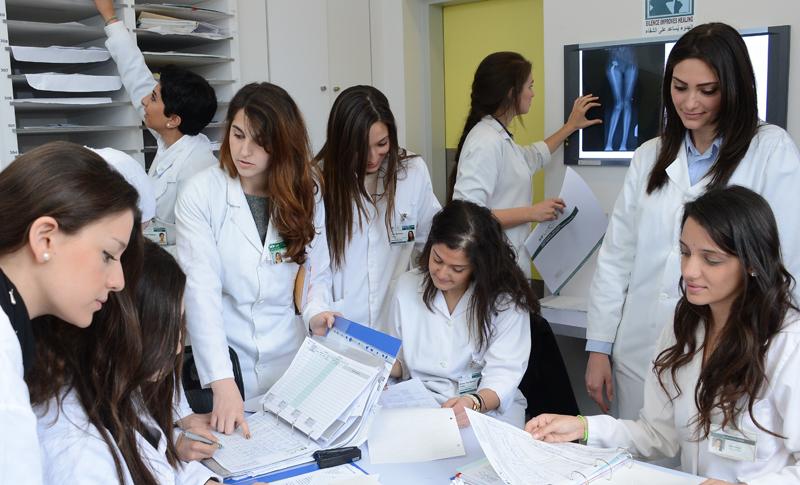LAU Launches MS in Nutrition with Interprofessional Emphasis

Nutrition is a growing field, both in Lebanon and abroad. Yet there are few distinguished programs to enroll in.
That will change this fall, when LAU’s Department of Natural Sciences launches an MS in Nutrition to meet the pressing need for interprofessional research in the field – making it the first graduate program in the country with such an emphasis.
The decision to launch the program comes at a time when there is “a serious need for research studies in the field of nutrition, concurrent with the alarming increase in the prevalence of nutrition and food-related health problems in the MENA region in the last three decades,” said Associate Professor Nadine Zeeni, the Nutrition Program coordinator.
The program is ideal for students with a bachelor’s in Nutrition or a related field such as Food Science, Biology or Chemistry, or for those who did health-related majors such as Pharmacy, Nursing or Medicine. Future graduates can work in “the clinical field, the food sector as well as in community nutrition,” Zeeni said.
LAU has been stressing the importance of interprofessional education (IPE) for years, and it is already the emphasis of the BS in Nutrition and Dietetics. Indeed, IPE “is a requirement for the accreditation of most health-related undergraduate degrees,” said Zeeni.
The IPE component is what makes the new program unique. “This is how we stand out compared to the other programs in Lebanon and even in the region,” Assistant Professor of Nutrition Maya Bassil noted.
In fact, the Academy of Nutrition and Dietetics highlighted the necessity of interprofessional care teams in its 2017 Joint Position Statement.
Bassil said that recommendatory bodies in all healthcare-related fields, including medicine and pharmacy, continuously stress the significance of working in an interprofessional and inter-collaborative manner. “It allows for better care for the patient when all the disciplines are involved. It also reduces healthcare costs by incorporating all fields.”
Creating a strong master’s program in Nutrition requires the collaboration of senior and research-oriented faculty. “We were building capacity to have the right number of senior professors and research professors before launching the MS program,” Bassil said.
Before even proposing the idea of an MS in Nutrition, Zeeni and Bassil circulated a survey asking students and alumni of the department if they would be interested in a Master of Nutrition program and what they would like it to focus on.
Graduates of the program will have a competitive edge in the field thanks to its structure and emphasis on IPE. This will strengthen their projects’ credibility, leading to a better understanding of how to collaborate with other professions, which will in turn help them become leaders in the growing field.